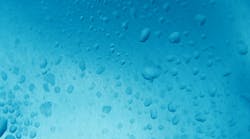The Awwa Research Foundation, a non-profit organization dedicated to advancing the science of drinking water, is requesting proposals for 30 research projects scheduled to be launched in 2003. The projects, with nearly $12 million in funding, focus on a wide range of topics related to the drinking water community.
Requests for proposals (RFPs) for the projects will be available on the Foundation's web site on March 14 at www.awwarf.com.
According to Jim Manwaring, executive director of AwwaRF, this year's project agenda focuses on four strategic goal areas: efficient and customer-responsive organization, environmental leadership, high-quality water and infrastructure reliability. "The overarching goal of our research is to provide information to the drinking water industry that's based on scientifically-credible research," said Manwaring. "Each year we target the most salient topics for the water industry based on input from our members, leading professionals in the field, and the results of prior research. Our studies provide knowledge that utilities and other water professionals can use to continuously enhance operations and improve drinking water quality."
Proposals submitted in response to an RFP must be postmarked by either May 5 or July 15, as specified in each RFP. All projects, unless otherwise indicated, must include 25 percent of the total project budget as in-kind or cash contribution. In-kind contributions can be in the form of labor, materials or laboratory and other services and may come from project participants such as water utilities, consulting firms and universities. For each project, an appointed project advisory committee will evaluate proposals based on responsiveness to the RFP, scientific and technical merit and qualifications of the researchers.
A complete list of the projects for which proposals are being requested, categorized by the strategic goal area, is below.
Efficient and Customer Responsive Organization
· A Knowledge Management Approach to Drinking Water Utility Business (RFP 2933)
· Benchmarking Water Utility Customer Relations Best Practices (RFP 2947)
· Best Practices for Integrating Worker Health and Safety Into the Design and Operation of Water Systems (RFP 2943)
· Disaster Response, Recovery, and Business Continuity Planning for Water Utilities (RFP 2929)
· Implementing Reliability Centered Maintenance (RCM) Programs at Water Utilities (RFP 2953
· Strategic Communication Planning for Drinking Water Utilities (RFP 2955)
· Risk Analysis Strategies for More Credible and Defensible Utility Decisions (RFP 2939)
· Water Efficiency Programs for Integrated Water Management (RFP 2935)
Environmental Leadership
· Developing an Environmental Management System for Water Utilities (RFP 2930)
· Environmental Impacts of Non-Treatment Discharges From Drinking Water Utilities (RFP 2937)
· Identify Knowledge Gaps With Total Maximum Daily Loads (TMDL) and Drinking Water Utilities (RFP 2944)
· Regional Solutions to Developing Water Supplies (RFP 2950)
· Update the AwwaRF Manual Water Treatment Plant Waste Management (RFP 2934)
High Quality Water
· Characterization of Waterborne Aeromonas spp. for Their Virulence Potential (RFP 2957)
· Contribution of Wastewater to DBP Formation (RFP 2948)
· Criteria for Quality Control Protocols for Various Algal Toxin Methods (RFP 2942)
· Dosimeters for UV Dose Verification and Monitoring (RFP 2949)
· International Workshop and Report on Pesticides, Their Degradates and Inert Ingredients (RFP 2938)
· Long-Term Effects of Disinfection Changes on Water Quality (RFP 2940)
· Natural Organic Matter Fouling of Low Pressure Membrane Systems (RFP 2952)
· Optimizing the Generation and Capacity of Adsorptive Sites on Oxide Surfaces for Manganese Control (RFP 2951) · Rejection of Trace Organic Contaminants by Reverse Osmosis and Nanofiltration Membranes (RFP 2945)
Infrastructure Reliability
· Condition Assessment of Water Treatment Plant Structures - Filter Beds (RFP 2936)
· Distribution Water Quality Issues Related to New Development or Low Usage (RFP 2954)
· Guidelines to Minimize Downtime During Pipe Lining Operations (RFP 2956)
· Impact of Petroleum-Based Hydrocarbons on PE/PVC Pipes and Pipe Gaskets (RFP 2946)
· Installation, Condition Assessment, and Reliability of Service Lines, Connections, and Fittings (RFP 2927)
· Leakage Management Technologies (RFP 2928)
· Life Cycle Analysis of Epoxy Lining (RFP 2941)
· Performance and Life Expectancy of Elastomeric Gaskets in Contact With Potable Water (RFP 2932)
Source: Awwa Research Foundation

